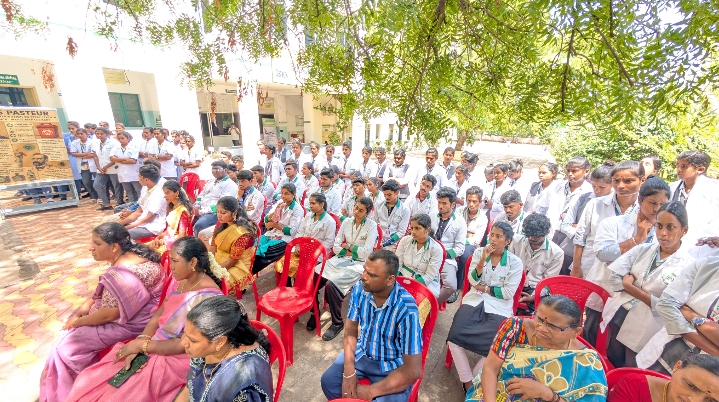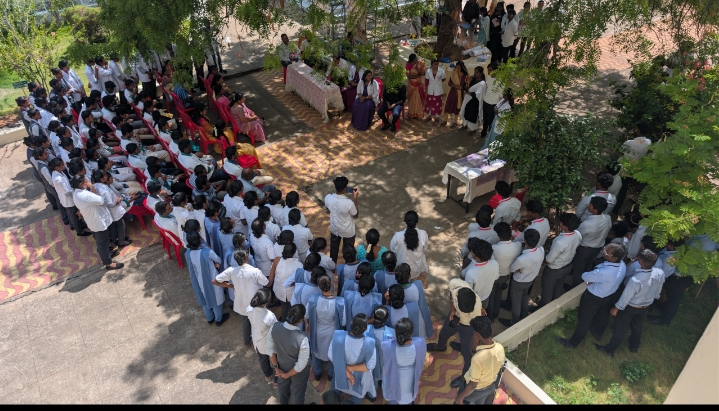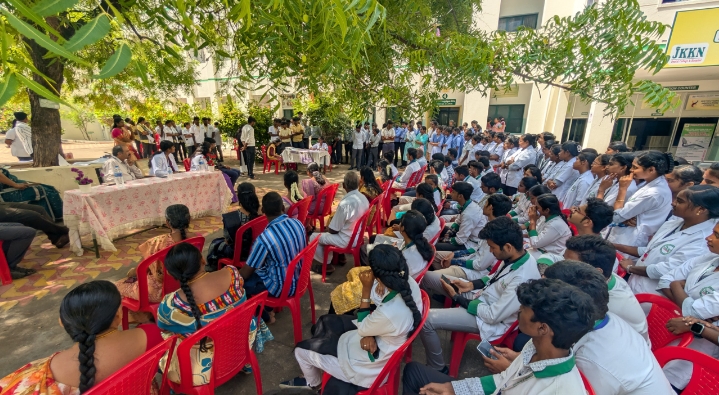
On July 11, 2025, the JKKN College of Allied Health Science proudly organized a thought-provoking event to commemorate World Zoonoses Day, held at the JKKN Dental College campus. The event honored the groundbreaking contributions of Louis Pasteur, the father of microbiology, and emphasized the importance of understanding zoonotic diseases—those transmitted between animals and humans. With the collaborative support of Yi YUVA, Bharat Rising, Confederation of Indian Industry (CII), Yi Health, and Yi Learning, the program brought together students, faculty, healthcare professionals, and public health enthusiasts to explore the current challenges and opportunities surrounding zoonotic disease prevention.

The event began at 10:30 AM with an insightful inaugural session highlighting the global impact of zoonotic diseases, especially in the aftermath of pandemics like COVID-19. Keynote speakers and student presenters delivered engaging talks on topics such as the epidemiology of zoonoses, the importance of the “One Health” approach, environmental factors influencing disease transmission, and the need for stronger collaboration between human and animal health systems. The audience was captivated by visual presentations, interactive posters, and creative exhibits that reflected the students’ dedication to spreading awareness.
Participants emphasized how human activities—such as deforestation, illegal wildlife trade, and unsanitary handling of animals—contribute to the rise of zoonotic diseases. Through scientific discussions and practical examples, the event encouraged critical thinking and responsible behavior when it comes to interacting with nature. Students also highlighted the role of vaccination, hygiene, and early detection, reinforcing the legacy of Louis Pasteur’s life-saving innovations in microbiology and immunology.
The program was not only informative but also empowering. It served as a reminder that public health education starts within communities and that informed individuals are key to preventing future outbreaks. This aligns with the vision of the United Nations Sustainable Development Goals (SDG 3 – Good Health and Well-Being), to which JKKN is firmly committed. The event promoted leadership, scientific inquiry, and awareness, inspiring students to be advocates of public health both locally and globally.
Special thanks were extended to the organizing team, faculty mentors, and student volunteers who made the event a grand success. The support from interdisciplinary departments and collaboration with external organizations like Yi and CII demonstrated the strength of collective action in promoting health literacy. The vibrant visuals used throughout the event—featuring animals such as lemurs, kangaroos, dogs, and more—visually captured the close ties between humans and the animal world, making the message both impactful and memorable.

In essence, the World Zoonoses Day celebration at JKKN was not just an event but a powerful step toward building a healthier and safer world. It reminded us that health is universal, and by recognizing the shared risks between humans and animals, we can prevent future crises. Honoring Louis Pasteur’s legacy, the institution reinforced its commitment to scientific education, innovation, and global health awareness.




